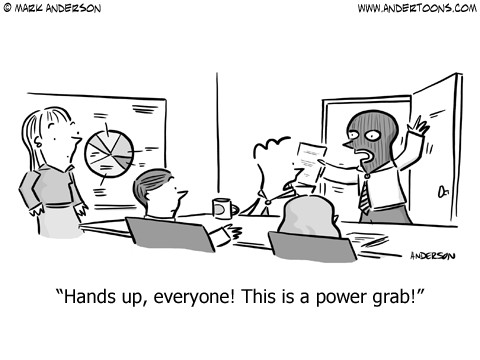Now You Work for Everyone
Welcome to management! Yes, at some point in our careers many of us will be recognized for some combination of talent, hard work, achievements, saying the right thing (or the wrong thing at the right time), potential and luck (sorry, but luck is always a part of it too. You’re not that special).

Colleagues you were working side-by-side with yesterday and other managers who you will not be seeing every morning at the managers meeting will both be expecting you to take charge and whip your team into the high-performing model of efficiency and effectiveness you were to get that promotion!
Right?
Well, it’s not really like that…
In reality, that team of 30 people you were part of that now reports to you? You are actually working for them now.
That’s right. YOU WORK FOR THEM.
Management Isn’t About “Managing”
A common problem I always see with many managers (and I don’t only refer to “new” or “young” ones, many have been doing things this way for YEARS), is that they tend to mix up their awareness of their great responsibility with a perceived requirement to be at the center of everything in their realm (or “empire” for those with bigger egos). The list of bad habits I see that this leads to include (but are not limited to – I don’t see everything):
- Centralized decision-making – the manager owns the final decision on too many levels
- A bad case of “How-to-ism” – the manager dictates not just what, but HOW things should be done.
- A Culture of Me – the group culture revolves around the manager and will disappear when they eventually do.
- Fear of Brains – the manager feels an obligation, or worse, genuinely believes, he/she needs to be the smartest person on the team.
- Noses Where They Don’t Belong – When your manager is focused on serving their own manager more than your customers, you also have a culture problem.
The common thread of all of these symptoms is a belief by the manager that they are supposed to actively “manage” their people. If you have been handed a “power ring” as a manager, what makes you think it is supposed to be used on your team?

Give Away the Power!
Now…this is not a message for the insecure, but if that section title makes you nervous, you won’t like the rest of what I have to say and might not be as effective as you would think you are.
Being a leader, a manager, of a team, an org or an entire company means that you are really responsible for the results. Period. There are many ways to get results, but taking ownership over every activity going on in your org is not a sustainable way to do it.
Instead, what if you saw your role as being a “servant of the team”, and in that spirit, defined your priorities around the needs of your team and not their tasks?
These are the good habits of the “Servant Manager”:
- De-Centralization - Collaborates with team on the big decisions, lets them own the other decisions as part of their growth process.
- Unleashes Their Creativity – Yes, there are some things in life where there might only be ONE way to do it, but a good manager lets his people be creative about HOW to solve a problem.
- A Culture of Customer – Orgs that are serving “up” to a manager are not serving customers. Keeping everyone focused on the customer AND giving them the authority to serve them as needed is empowering and improves customer experiences.
- Fear of Cement Shoes – A mentor of mine told me in my first management job “if you can’t replace yourself, how will you ever get promoted?” Hire the best – not the most loyal. If you are always the smartest person on your team every problem will come back to your desk.
- An Eye for Customers – Related to #3, if your team is focused on the customer, then you should be focused on supporting them, not your manager. If your manager isn’t at your back too, then your company needs a new culture.
The common thread here is about how you use your power as a manager. The reality is that you don’t – at least in not the visible manner most of us are accustomed to seeing.
Giving Away Power, Get More Back

Taking your role and transforming it into one where your core mission is “support my team to ensure they have the resources they need to do their jobs” gives you a powerful way to motivate your team. There is not a stronger demonstration of power than to demonstrate a trust in your team and letting go of the details, along with comfort that they will make mistakes – and that is OK.
It doesn’t mean you give up everything. You are still in charge of setting direction via strategy, defining roles, mentoring (and listening!), and resourcing your team with the right people and a budget to do their jobs properly. Teams where the manager empowers the team tend to be flatter orgs, have less turnover, higher customer satisfaction and more innovation.
Be the one to rack up the assists and watch your team win...
To learn more about giving away your power successfully, see our White Paper on
“The Customer-First Business Culture”.




